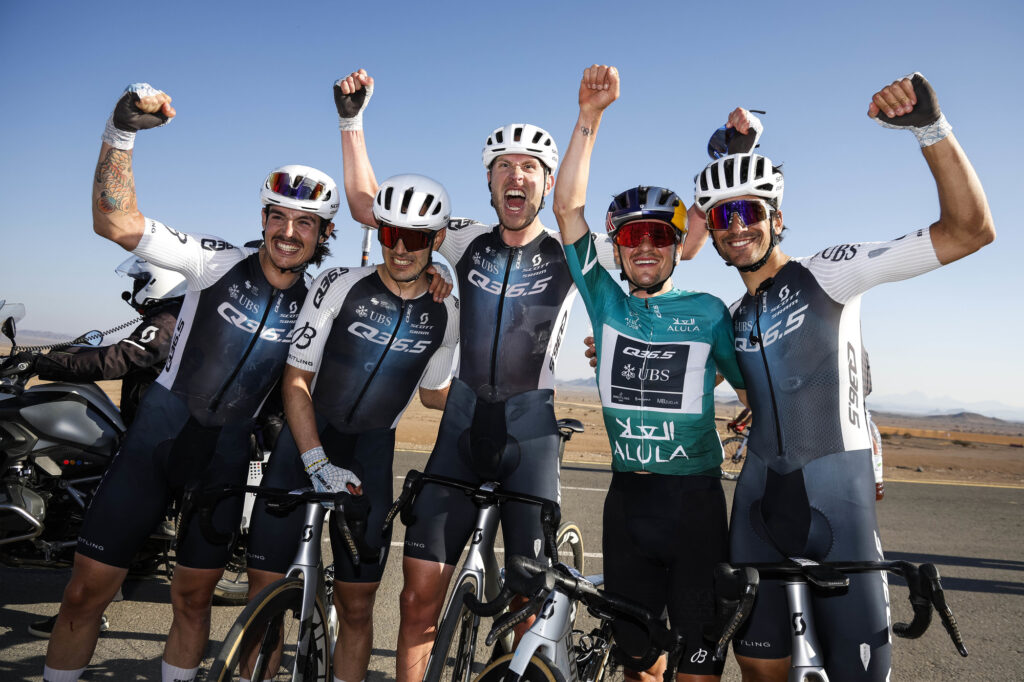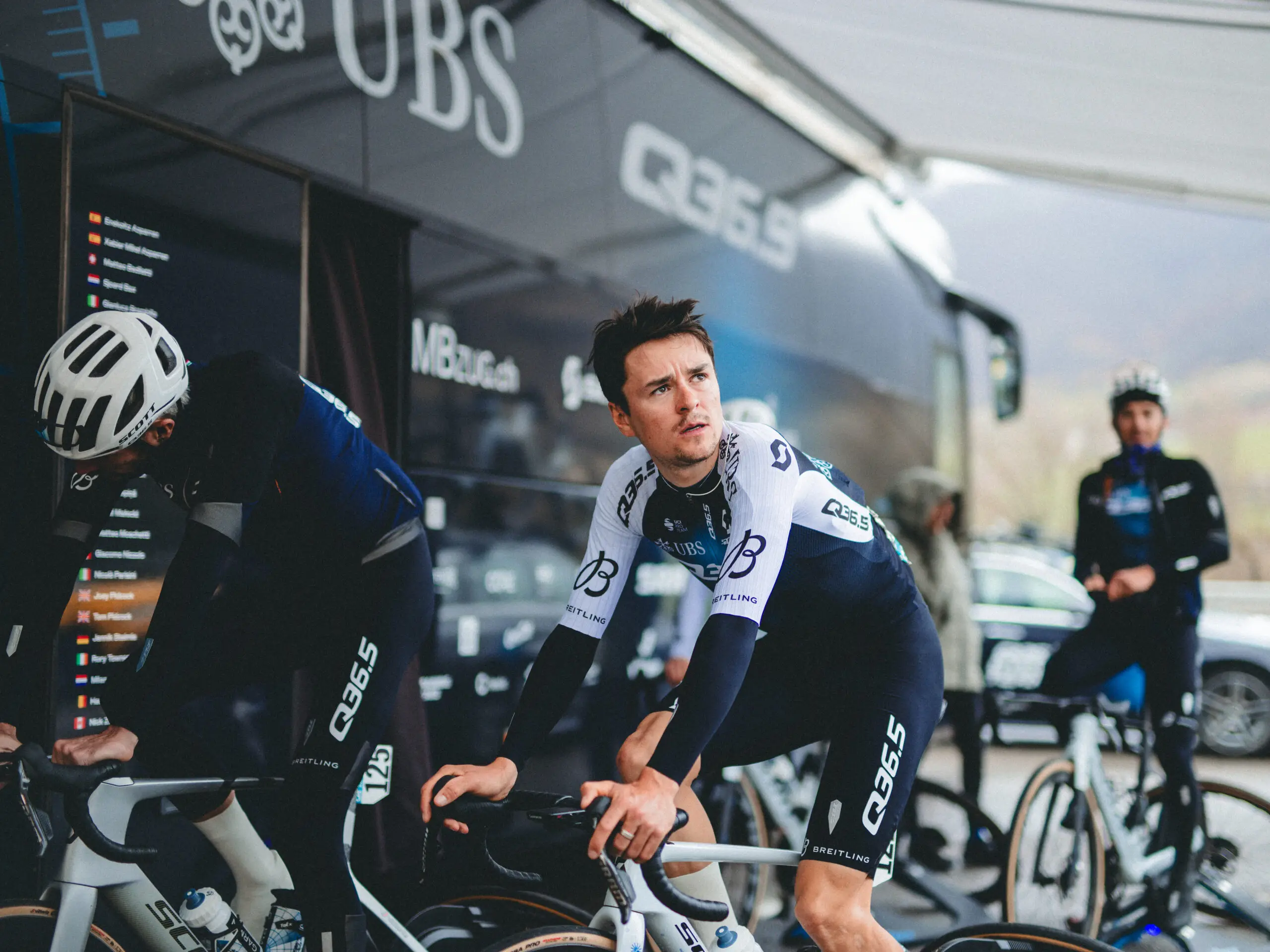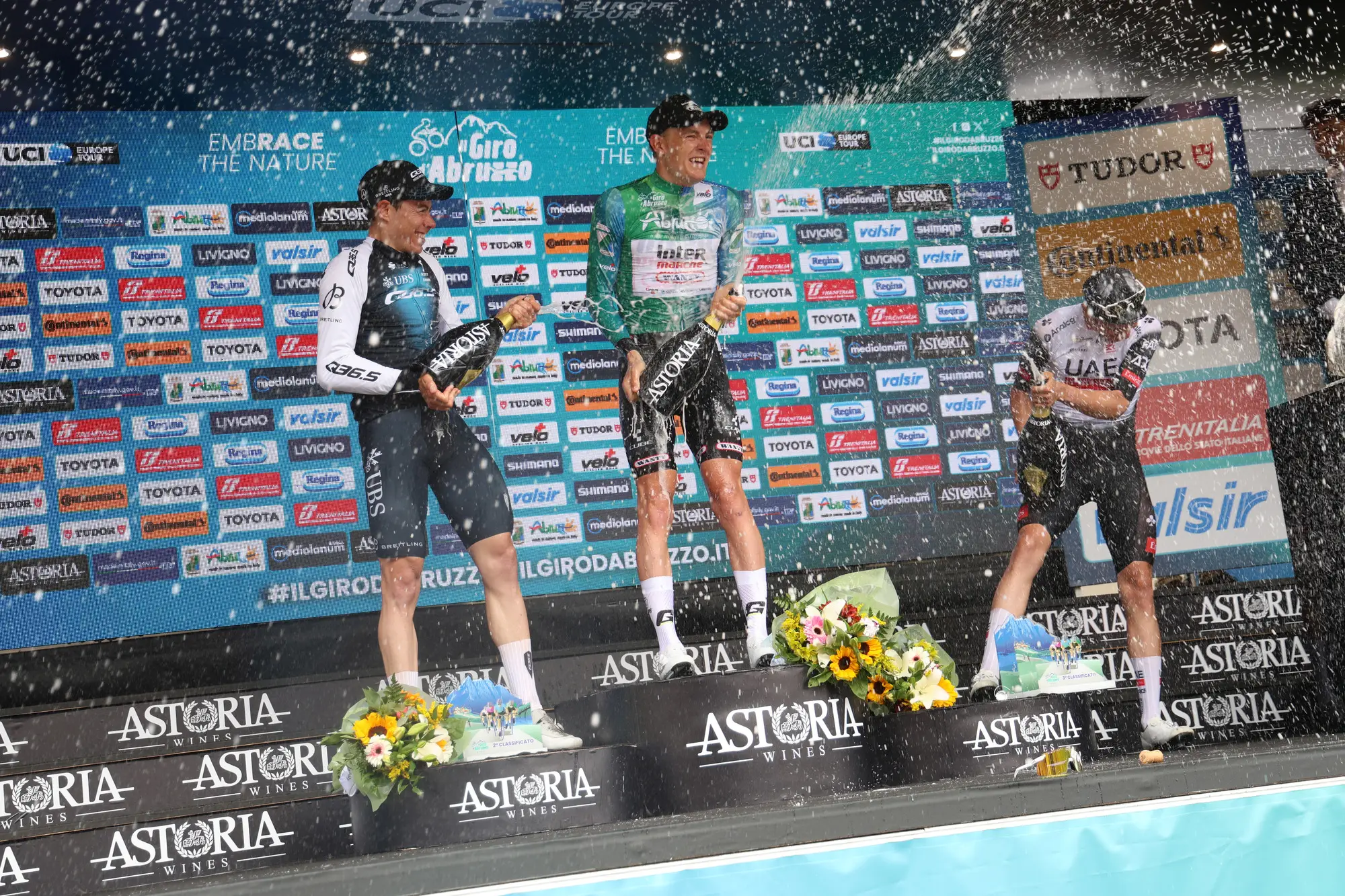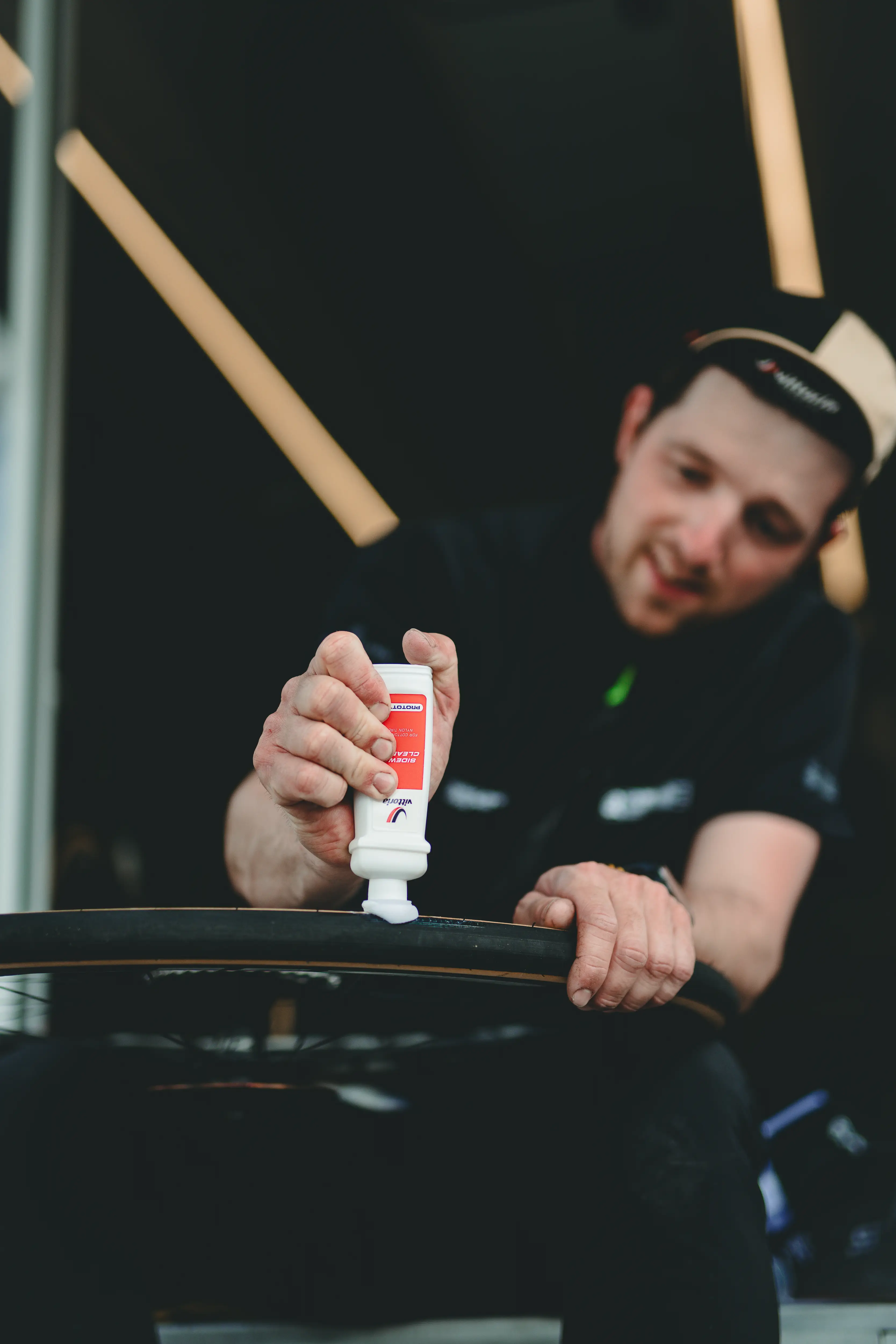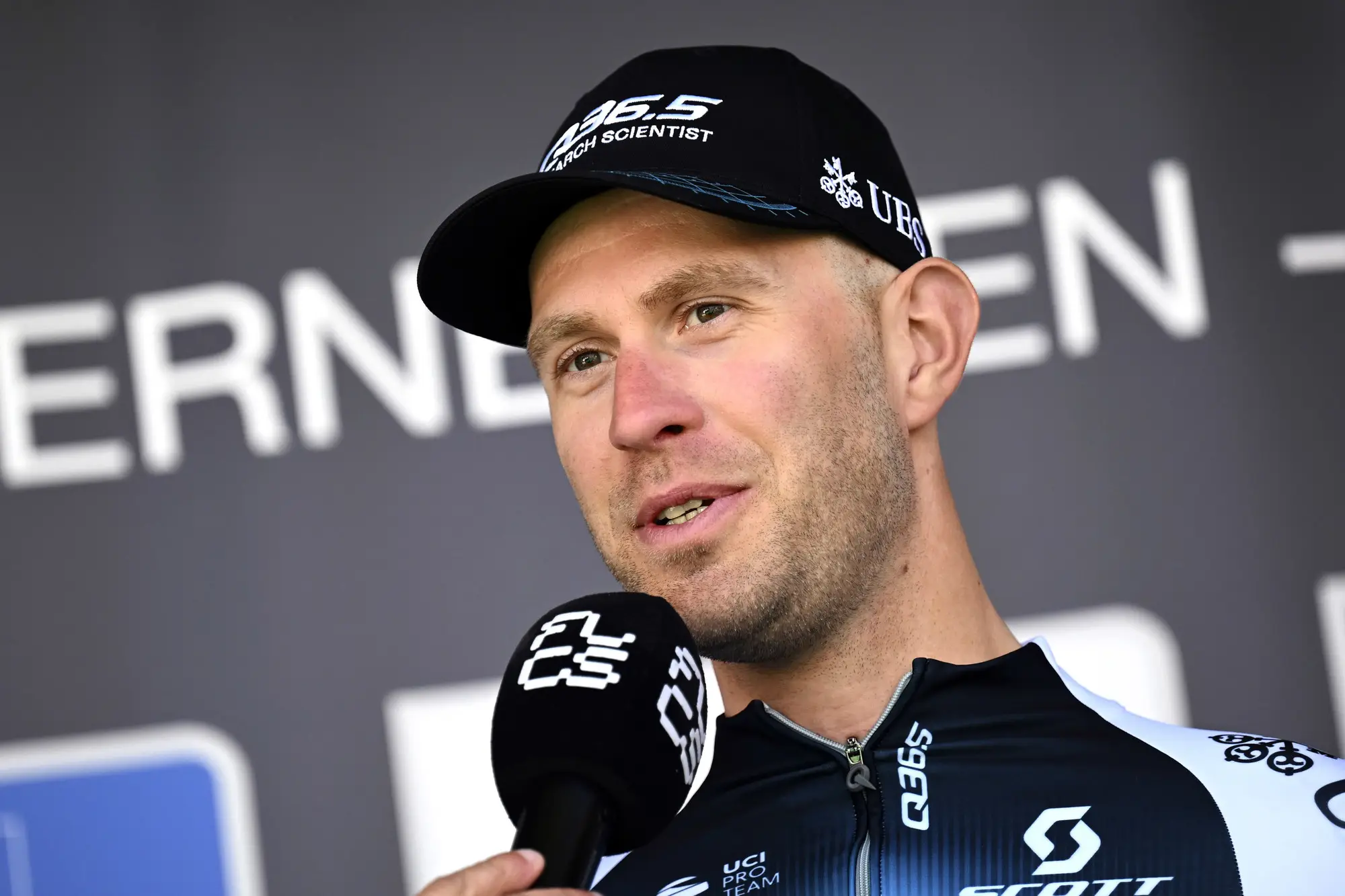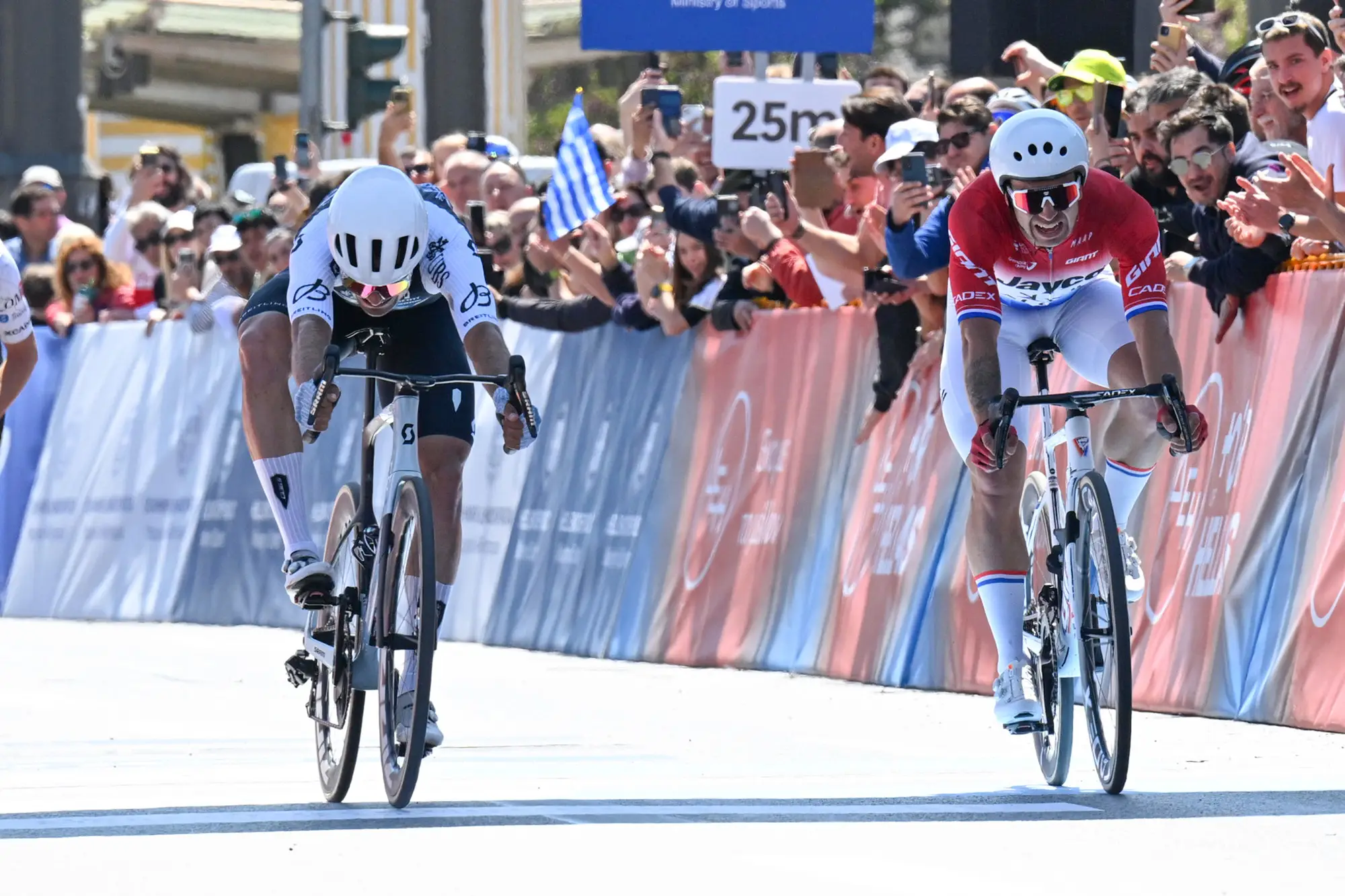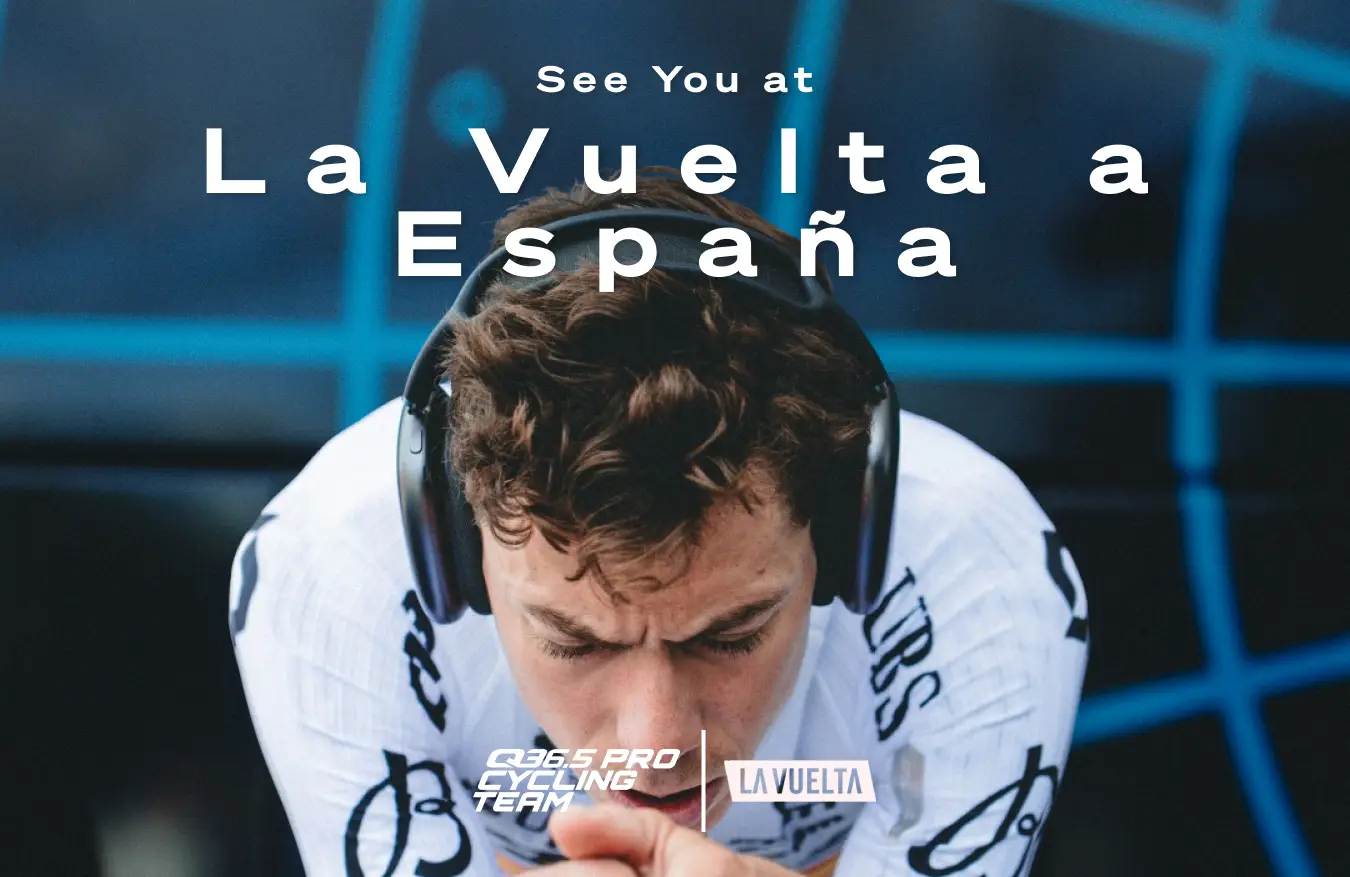Featured Story
Moschetti’s Comeback Story
On Saturday 2 February Matteo Moschetti won the final stage of the AlUla Tour. At 83 kilometers an hour over the final 500 meters it was probably the fastest sprint ever on record in professional cycling but to us at Q36.5 Pro Cycling Team it was special for a different reason.
12 February 2025
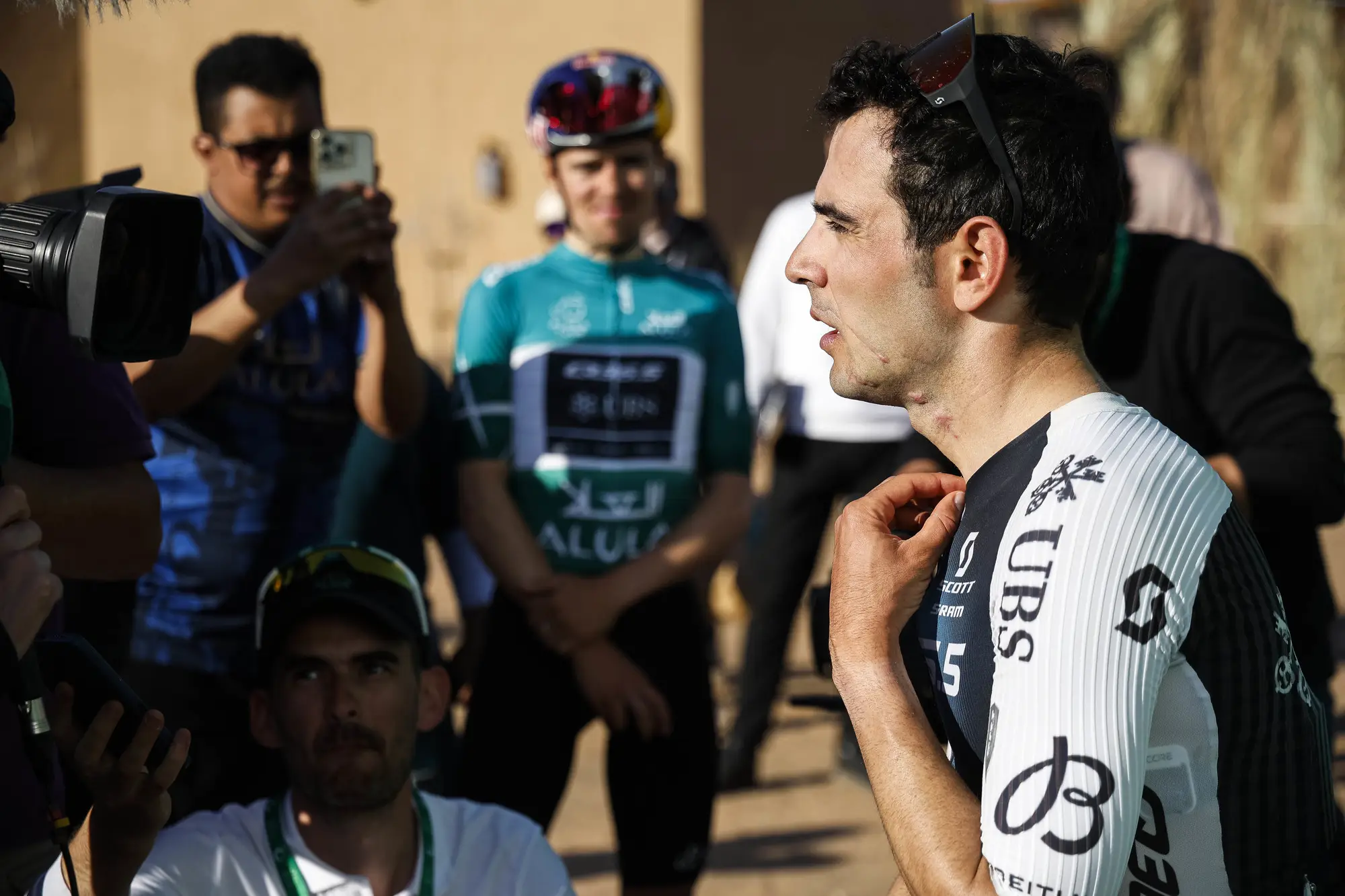
On 23 July 2024 Matteo was hit by a truck while training. He suffered a broken neck, collarbone and many scrapes and cuts. The win in AlUla Tour marked the end of a remarkable comeback where Matteo showed physical but most of all extraordinary mental resilience.
First let’s go back to that day in 2024. Matteo had just come back from an altitude camp at Livigno with the team and was preparing to get ready for the second half of the season starting with Czech Tour. On the way home from Livigno he decided to visit his family in Milan and fly from Malpensa to Prague.
“It was nice to see my parents for a few days because I don’t get to see them that much,” Matteo starts. “I had a flight later that day, so I used that morning for an easy spin of one and a half or two hours maybe. That’s when it happened. The truck driver never saw me. I wasn’t even going that fast, but it was a really scary thing to go through.”
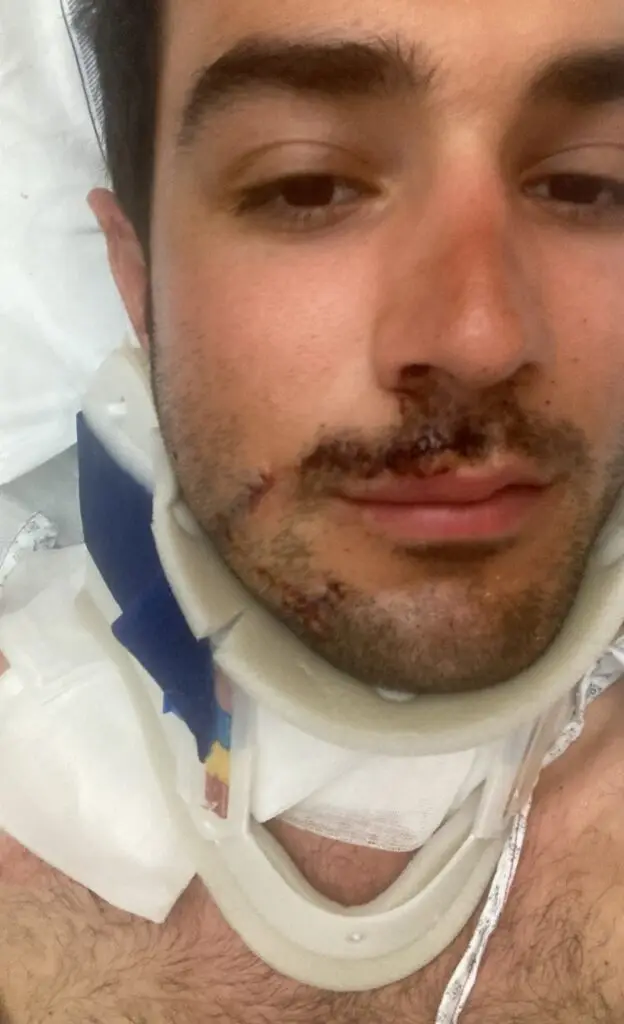
Lorenz Emmert, chief medical of Q36.5 Pro Cycling Team sprang into action after the first calls from Milan and made sure Matteo got the best care possible. This care often differs from people who are not pro athletes. The medical team in Milan knew straight away the injuries were bad with broken vertebrae in the neck, a broken collarbone and many cuts and scrapes on Matteo’s face. Despite this horrible list, Matteo wasn’t too pessimistic. It’s just not in his nature to be.
“It could have been much worse. In the end I only needed surgery on the collarbone which is part of being a professional bike rider,” he says with a smile. The recovery from a broken neck wasn’t as easy, but Matteo soldiered on.”
“The recovery from a broken neck wasn’t as easy, but Matteo soldiered on.”
“The neck injury took a lot of time and was very unpleasant. It was August and having these things around my neck all day was terrible with the heat. I could take it off at night, but I had to stabilize my neck with pillows. I didn’t sleep more than a few hours, also because the cuts on my face itched a lot. During those weeks I stayed with my family because I needed them. I couldn’t take care of myself. It was very hard for me but also for them to see me like this.”
A month after the accident Matteo traveled to Zurich to meet with the team doctor for examinations and tests.
“I was quite weak the day I travelled to Zurich” Matteo recalls. “During the scans I even fainted because my body had been working so hard to recover. Luckily the doctors said the fractures were all under control and pretty much healed. I got the green light to start doing a bit of training. I started with five-kilometer walks because it was all I could do.”
“The truck driver never saw me”
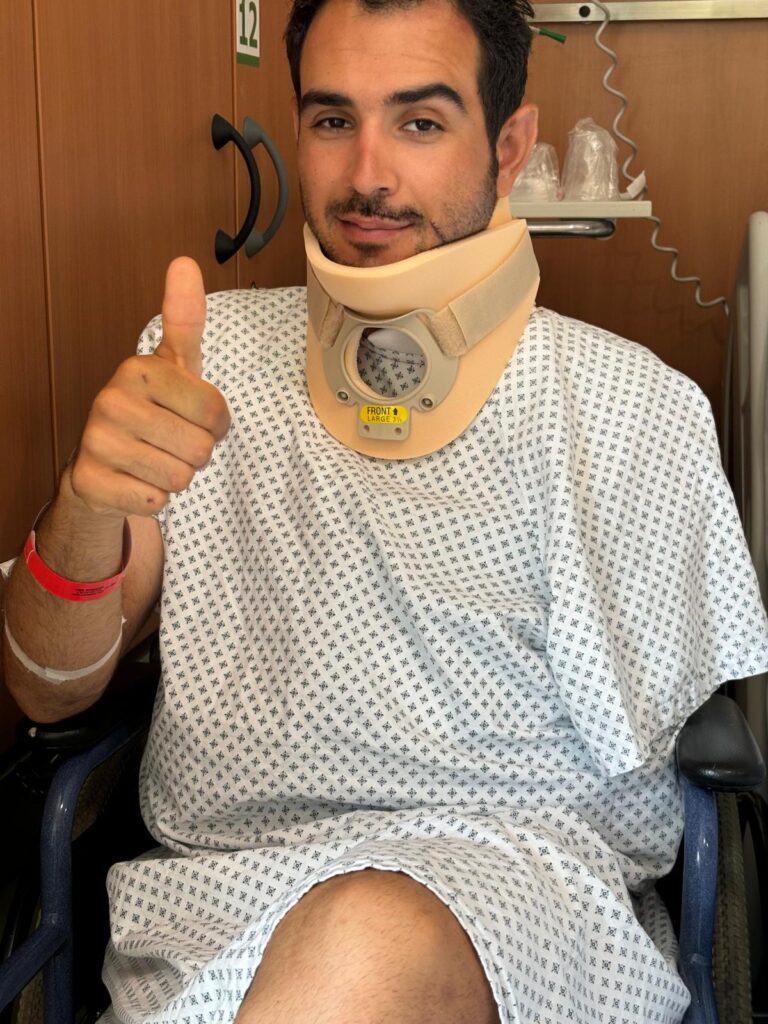
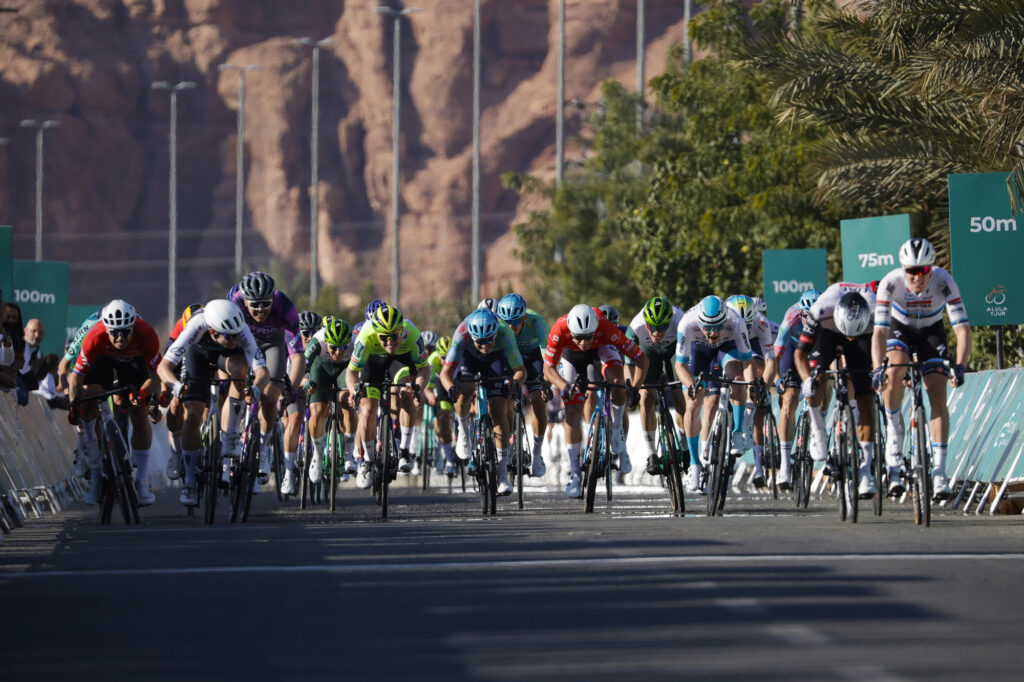
While the bones had healed, the mind had not. The mental impact of the crash became clear when Matteo rode a city bike for a kilometer and a half through Monaco, where he lives.
“I rode very slowly but it was a very unpleasant experience. I knew the doctors were right and I needed to seek mental help. I went to speak to an Italian psychologist I knew from my previous team, and she helped me a lot. I first started to ride inside and then went outside with someone, so I was not alone. At first, I rode only on the bike path. We really took getting over the fear of riding on open roads step by step.”
Matteo did return to the peloton in 2024. He lined up for Gran Piemonte on October 10 to experience being in a peloton again before starting the off-season and getting ready for 2025.
“The first 100 kilometers were flat so an easy run-in,” Matteo explains. “I must really thank the team because I wasn’t scared because they were around me that day. The idea was to close the season with one peloton experience. Even though I didn’t make it to the finish, racing Gran Piemonte was a good thing because I could start this new year like a normal year.”
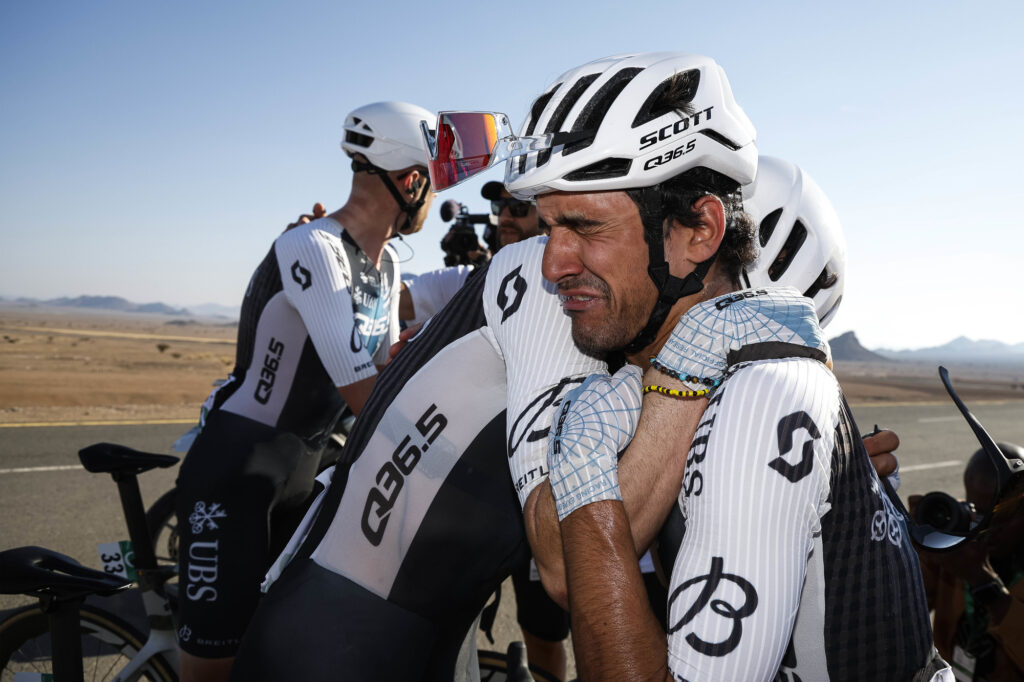
The new season started off really well for the Italian sprinter who lined up for his first full race since the accident. He was confident going to Saudi Arabia and showed it with two fourth places in a very strong sprinter’s field on day one and day three.
“The training camps went well but numbers are numbers and racing is what matters, riding against rivals,” he continues. “You just can’t train bunch sprints in training. The first sprint wasn’t perfect, but we worked really well together as a team. It was important for me to just feel good and be close to a win. The second sprint was a bit riskier, and I was hesitant to take too many risks. Despite two fourth places I felt I hadn’t shown my full potential yet and was hoping for the last day.”
And Matteo delivered with the help of the entire team. Emils Liepiņš and Nick Zukowsky managed the echelons in the first part of the stage and Nicoló Parisini, Xabier Azparren, Frederik Frison and Tom Pidcock were at the front with Matteo for the second half. After all that work Matteo recorded a sprint of 83 km/h in the last 500 meters, the fastest on record.
“We only decided to go for a sprint on the final lap when we knew that Tom’s general classification was more or less secure. We already passed the finish area twice before. The first time was a bit scary because the bunch was compact, and we were super fast. During the actual sprint you don’t even realize that you are so fast. You try to do the best sprint possible. In the end everything went well, and the group was small but maybe next year with a headwind and gradient this sprint is safer. In the end I am proud of what we did as a team, and to have Tom do a lead-out for me. It was also very emotional to see everyone so happy for me. That picture with Nicoló in tears tells the story of my comeback.”
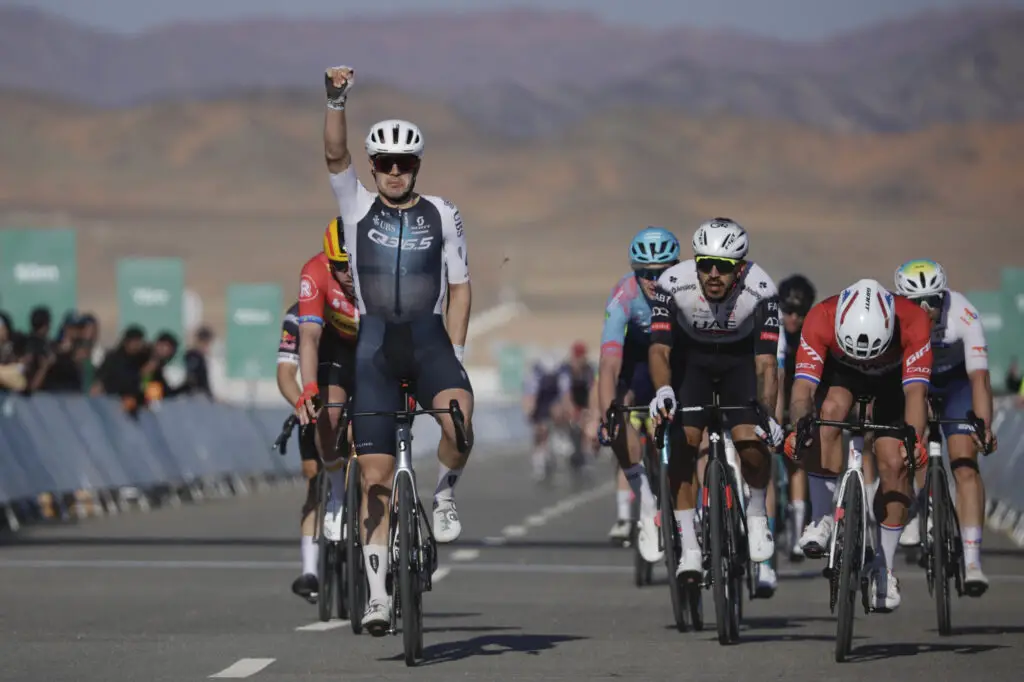
Sadly, the July 2024 crash wasn’t the first in Matteo’s career. He has had a few. He is philosophical about race crashes, but he feels the roads are getting more dangerous.
“I always think in the race that crashes can happen. It’s part of what we do. It doesn’t mean I don’t feel fear but not more than before the accident last year. My biggest struggle coming back was to be back on open roads. I never take big risks on training, but you can’t do anything about cars being too close. I was always careful but now even more so. In the last weeks, we heard so many terrible stories. Sara Piffer was only 19 and riding with her brother when she was hit and killed in traffic. I have a feeling it happens too often, and it makes you realize once again how vulnerable we all are as bike riders.”
Matteo’s next race will be the Clasíca Almería, a race he won in 2023 marking the first win for the new Q36.5 Pro Cycling Team.
